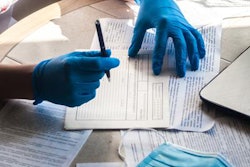
Dental Dose is a twice-monthly video series featuring pharmacologist Tom Viola, RPh. In each episode, Viola shares bite-sized pieces of dental pharmacology news, facts, and myths.
There's one dietary supplement that's proved to be medically effective but also to cause drug interactions and weird side effects. Viola explained what you need to know about St. John's wort in the latest episode of Dental Dose.
"If you were to say to me, hey Viola, give me the name of a dietary supplement that's actually been proven to work, I'd have to tell you it's St. John's wort," he said. "If you were to say to me, hey Viola, give me the name of a dietary supplement that causes drug interactions, I'd have to give you St. John's wort."
St. John's wort is named after a flower that blooms around the time of St. John the Baptist's feast holiday in the Roman Catholic calendar. It has been used for hundreds of years and studied, mostly in Europe, for decades.
The active ingredient in St. John's wort, hypericin, has been shown to boost mood and alleviate depression and anxiety much like modern selective serotonin reuptake inhibitors (SSRIs), such as Prozac and Lexapro. But it also has more drug interactions than most medications, Viola said.
Dental professionals also need to be aware of St. John's wort's side effects, including increased risk of bleeding, jaw clenching, and photosensitivity. Sometimes people using St. John's wort can get burned lips and lip lesions from sun exposure, Viola said.
Learn more about St. John's wort in the video below.
Do you have a topic suggestion for Dental Dose? We'd love to hear it. Send your ideas to Theresa Pablos.



















